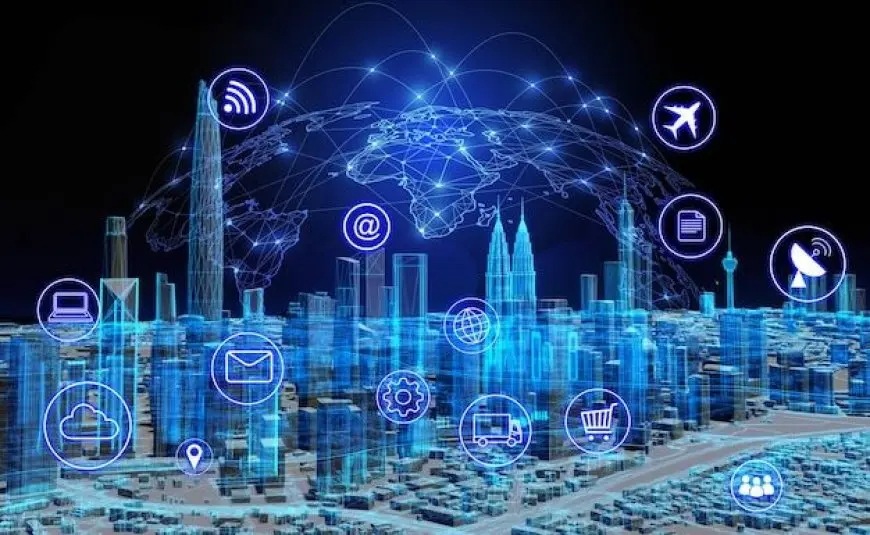"5G in the Evolution of Smart Cities"
"5G in the Evolution of Smart Cities"

The advent of 5G technology represents a groundbreaking step forward in the evolution of smart cities. By offering faster, more reliable, and ultra-low-latency wireless connectivity, 5G is set to revolutionize urban living, enabling smarter infrastructure, improved public services, and enhanced quality of life for city residents. As cities around the globe increasingly adopt smart technologies, 5G acts as the backbone that connects and empowers these innovations, driving efficiency, sustainability, and inclusivity.
What Makes 5G Essential for Smart Cities?
Smart cities rely on interconnected systems where various devices, sensors, and applications communicate seamlessly to provide valuable insights and automate processes. This connectivity is often referred to as the Internet of Things (IoT). For these IoT ecosystems to function optimally, they require a robust network capable of supporting massive data transmission in real-time. This is where 5G comes in.
Speed and Low Latency
Unlike previous wireless technologies, 5G delivers faster data transfer rates with minimal delay. This ensures that critical applications, such as traffic management or emergency response systems, can operate without interruptions, enhancing both safety and efficiency.
Massive Device Connectivity
5G networks can support a significantly higher number of devices per square kilometer than earlier generations. This capability is essential for densely populated urban areas where countless IoT devices like smart meters, surveillance cameras, and environmental sensors are in use.
Energy Efficiency and Reliability
5G networks are designed to be more energy-efficient and reliable than their predecessors. This is particularly important for smart cities aiming to minimize their environmental footprint while ensuring consistent connectivity for essential services.
Key Applications of 5G in Smart Cities
Smart Traffic Management
With 5G-enabled systems, cities can better manage traffic flow and reduce congestion. Real-time data from connected vehicles, traffic cameras, and road sensors can be analyzed instantly to adjust traffic lights, provide dynamic route suggestions, and manage public transportation schedules. In addition, 5G supports autonomous vehicles by providing the ultra-low-latency communication necessary for safe navigation.
Enhanced Public Safety
5G-powered smart cities can deploy advanced surveillance systems, emergency response tools, and disaster management platforms. High-resolution video streaming and real-time data sharing allow law enforcement and emergency services to respond to incidents more effectively. For example, wearable devices for first responders can transmit live health data to medical teams, improving coordination during emergencies.
Efficient Energy Management
The energy systems in smart cities rely on real-time monitoring and adjustments to optimize consumption and reduce waste. With 5G, smart grids can analyze energy use patterns and predict demand more accurately, ensuring efficient distribution. Moreover, 5G-enabled sensors in buildings can automate lighting, heating, and cooling based on occupancy, contributing to energy conservation.
Environmental Monitoring
Smart cities prioritize sustainability, and 5G facilitates advanced environmental monitoring solutions. Networks of sensors can track air quality, water levels, and noise pollution in real-time, providing authorities with actionable insights to address environmental challenges promptly.
Smart Healthcare Services
Telemedicine and remote patient monitoring are crucial components of smart city healthcare. 5G ensures that medical devices, wearable health trackers, and telehealth platforms operate seamlessly, enabling doctors to provide accurate diagnoses and treatments remotely. For example, 5G can support remote surgeries with real-time control and precision.
Connected Infrastructure
From smart streetlights that adjust brightness based on activity to automated waste management systems that optimize garbage collection routes, 5G enables more efficient and responsive urban infrastructure. These innovations not only save resources but also improve the overall livability of the city.
Improved Public Transportation
5G is transforming public transportation by enabling real-time tracking, predictive maintenance of vehicles, and dynamic scheduling. Passengers can access live updates about bus or train arrivals, while transportation authorities can monitor and optimize fleet performance to reduce delays and enhance service quality.
Challenges and Considerations
While 5G offers immense potential, implementing it in smart cities comes with challenges. These include:
-
High Costs of Deployment: Building 5G infrastructure, such as towers and base stations, requires significant investment. Cities must balance these costs with other budget priorities.
-
Cybersecurity Concerns: The increased connectivity of devices and systems in a 5G-enabled smart city heightens the risk of cyberattacks. Robust cybersecurity measures must be in place to protect sensitive data and critical infrastructure.
-
Digital Divide: Ensuring equitable access to 5G connectivity is essential to avoid creating disparities between different socioeconomic groups. Inclusive planning is critical to ensure that all residents benefit from smart city advancements.
-
Integration with Existing Systems: Transitioning from older communication networks to 5G requires careful planning and integration to ensure continuity and compatibility.
The Future of Smart Cities with 5G
The synergy between 5G and smart cities represents the next phase of urban evolution. With continuous advancements in 5G technology, cities can expect even more transformative solutions in areas like augmented reality for urban planning, drone-based delivery systems, and personalized citizen services powered by AI. As cities adopt 5G, they will become more adaptive, sustainable, and resilient, creating an environment where technology serves as a catalyst for growth and well-being.
5G is not just a technological upgrade; it is a foundational element that will shape the future of smart cities. By enabling faster, more reliable, and energy-efficient connectivity, 5G empowers urban areas to achieve greater sustainability, efficiency, and inclusivity. From managing traffic to enhancing healthcare, the applications of 5G in smart cities are vast and varied. As cities worldwide embrace this technology, they are laying the groundwork for a smarter, more connected future.







